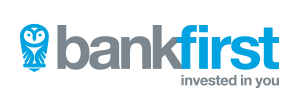What is a fixed-rate car loan?
As the name suggests, a fixed-rate car loan is a type of personal loan offered with an interest rate that remains locked or ‘fixed’ for the duration of the loan. Unlike variable-rate car loans, offering an interest rate that fluctuates based on market changes, the interest rate on a fixed-rate car loan is set at the time of loan approval.
With a fixed-rate car loan, you can avoid the risk of sudden increases in repayments if the loan market fluctuates or the Reserve Bank raises the cash rate. This predictability can be beneficial when budgeting, as you know your repayment amount will remain constant throughout the life of the loan.
Like their variable-rate counterparts, fixed-rate car loans can be offered either as secured or unsecured car loans. Secured car loans require a ‘security’ in the form of an asset to decrease the level of perceived risk to the bank or lender should you be unable to make car loan repayments.
Unsecured car loans don't require you to use your car or any other assets as security for the loan. This means the lender can't automatically take your car or other assets if you can't pay back the loan. As there's more risk involved for the bank or lender, interest rates on unsecured loans are typically higher.
Fixed rate vs variable rate car loan
Choosing between a fixed or variable car loan affects how much you'll pay over time. Here's a quick comparison to help you decide.
|
Feature |
Fixed-Rate Car Loan |
Variable-Rate Car Loan |
|---|---|---|
|
Interest Rate |
Stays the same for the entire loan term |
Can change over time with market rates |
|
Monthly Payments |
Predictable and consistent |
May fluctuate - can increase or decrease |
|
Budgeting |
Easier to plan finances |
Harder to predict long-term costs |
|
Initial Rate |
Often slightly higher than variable rates |
May start lower than fixed rates |
|
Risk Level |
Lower - protected from rate hikes |
Higher - exposed to rising interest rates |
|
Best For |
Buyers wanting stability and long-term plans |
Buyers who want more flexibility who can tackle changes |
How to compare fixed-rate car loans
It can be a difficult task knowing what to look for when comparing fixed-rate car loans with thousands of products available across a number of banks and lenders. To ensure you are getting the best possible deal, consider the following factors:
1. Advertised interest rate
The higher the interest rate, the more interest you will pay over the life of your car loan, and the higher your base repayments will be. The beauty of a fixed-rate car loan is the fact that this interest rate will not change over the lifetime of the loan. This means that if the Reserve Bank were to consistently lift interest rates, pushing banks and lenders to rates to increase their offerings beyond the rate you have fixed, your rate will not change. The inverse is also true.
2. Comparison rate
Banks and lenders are obligated to advertise the comparison rate (the interest rate plus various fees) of the fixed-rate car loan alongside the interest rate to provide customers with an overview of the true cost of the car loan.
For example, a fixed-rate car loan may have an advertised interest rate of 8.99% p.a. with a comparison rate of 10.50% p.a. The comparison rate in this case is higher as it takes into account the interest rate plus associated loan fees. This scenario suggests fees could be quite high.
3. Fees and costs
Fixed rate car loans will generally have establishment fees, ongoing fees, or early repayment fees, given they come with the budgeting benefit of a fixed-interest rate. It's important to compare the fees and charges of products on offer before settling on an option that may be right for you.
4. Loan term
Fixed-rate car loans can vary from one to seven years; however, most fixed-rate car loans will be taken out by customers at either three to five years. Ultimately, the length of your loan comes down to your financial position and your ability to make the same consistent repayments over a set period of time.
You may be able to pay off your loan faster with a fixed-rate car loan if your circumstances and loan structure allow for extra repayments can be made. If you make extra repayments on your loan, your monthly repayment will usually remain the same as the original agreement. However, by making extra payments, you will be reducing the overall term of your loan, and thus pay less interest over the life of the loan.
Benefits and drawbacks of a fixed-rate car loan
Benefits
-
Repayment certainty: One of the primary benefits of a fixed-rate car loan is the repayment certainty it provides. You will know how much you will be required to pay each week, fortnight or month for the duration of the loan without having to worry about changes to interest rates based on internal and external factors.
-
Pay off your loan early: Just because it’s fixed doesn’t mean you can’t get ahead. With many products, you can typically pay off your fixed-rate car loan early without incurring a high fee.
Drawbacks
-
Limited flexibility: With a fixed-rate car loan, you may not always have the flexibility to make additional repayments without incurring additional fees. You might not have additional features like a redraw facility or the ability to refinance if interest rates in the market decrease.
-
Higher interest rate: What you sacrifice in flexibility that is associated with a variable-rate car loan, you might compromise with a higher interest rate.
-
Rates may shift: If interest rates decrease during the loan term, you may miss out on the chance to take advantage of lower rates as you will be ‘fixed’ to a higher interest rate.
-
Fees: Fixed-rate car loans will generally charge a greater number of fees across the loan.
As with any financial product or loan, it's important to carefully review the terms and conditions as policies regarding extra repayments or early exits, fees and structure may vary across providers.



















